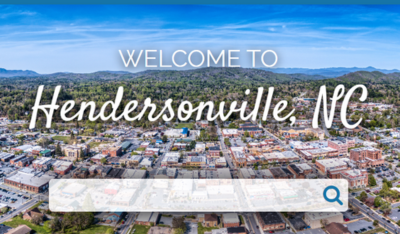Find the legal guidelines for your state in hosting virtual public meetings for community engagement
Below, we’ve assembled policy guidance issued by a number of states on holding open virtual public meetings during the COVID-19 crisis. While it is by no means intended to be an exhaustive list, it does provide illustrative examples of what constitutes legally-compliant virtual public meetings.
3 Key Themes of New Guidelines That Affect Community Engagement
In reviewing these announcements and working with partners, a few key themes emerge:
-
The public should be provided straightforward ways to access the meeting – i.e. listen or watch
-
Most require a way of accepting public comments
-
Many reiterate the need to post agendas in advance and publish minutes following the meeting
While most of this is straightforward, a number of recent developments have made the access and public comment access trickier – especially given the FBI’s recent guidance that conferencing service access codes and links not be shared publicly. We’ve worked with partners to develop a comprehensive community engagement platform for facilitating secure, accessible, and legally compliant virtual public meetings.
We hope these examples are helpful as you plan your meetings – and feel free to schedule a call with our team to learn more about options available from PublicInput.com.
Examples of Local State Guidelines
Illinois
Governor Pritzker issued a statewide “Stay at Home” Executive Order and waived part of the Illinois Open Meetings Act to allow local governments and other public bodies to hold “remote” meetings. This virtual meeting guidance from an Illinois legal firm outlines a number of practices that align with the new guidance.
1. Provide the public with multiple and redundant means of access to offer comments at public meetings and participate in public hearings;
2. Be methodical, clear, and demonstrative in the conduct of meetings and hearings.
Local governments responded to this addition by adopting local rules governing when and how public comment can be made at public meetings, including (i) establishing a specific portion of the agenda during which public bodies will hear public comment, (ii) setting time limits for individual speakers, and (iii) prohibiting obscene or threatening speech.
Nebraska
Governor Pete Ricketts issued an executive order to permit state and local governmental boards, commissions, and other public bodies to meet by videoconference, teleconference, or other electronic means through May 31, 2020.
The Governor’s order stipulated that all such virtual meetings must be available to members of the public, including media, to give citizens the opportunity to participate as well as to be duly informed of the meetings’ proceedings. The Governor’s order did not waive the advanced publicized notice and the agenda requirements for public meetings.
New Jersey
The Division of Local Government Services has issued updated guidance concerning virtual meetings during the current public health crisis. The new Guidance offers extensive information on the conduct of public meetings and includes the following statement:
“Local units must ensure that the public retains the ability to attend and provide comment at public meetings. Therefore, local units should provide instructions to the public regarding how to access a remote meeting and the procedures for commenting through whatever equipment or medium is utilized.”
North Carolina
The state Attorney General’s office issued guidance in a PDF announcement here.
Access – With few exceptions, an official meeting of a public body shall be open to the public. N.C.G.S. §143-318.10. Access should be reasonable. The Governor can, and has, limited the number of people that can physically attend a gathering. That limitation must be respected. This means the public must be given reasonable means of listening/participating in the meeting.
Ohio
The state’s emergency legislation found in Substitute House Bill 197 makes some temporary changes to Ohio’s Open Meetings Act, effective until the end of the declared emergency or Dec. 1, 2020. FAQ provided here.
When it is conducting a public hearing, the public body also must utilize electronic equipment and technology which is widely available to the general public and which permits the public to converse with witnesses, and to receive documentary testimony and physical evidence.
In the case of virtual public meetings, the public body need only provide public access to the content of the meeting. Regarding public hearings required by law, the public body must provide interested parties access to the proceedings as well as a mechanism to provide input, question witnesses and view evidentiary material. Public hearings, therefore, require an interactive function.
Oregon
The Governor’s office’s stay home, save lives guidance means meetings must be held electronically. The Department of Education provided a length interpretation of this guidance. While it is specific to school boards, its guidelines are helpful for all public organizations.
Provide the community opportunity to comment through written testimony or participate electronically through surveys, online polls, social media, conference calls or a live webinar.
Ensure all public input is compiled and submitted prior to hosting the virtual board meeting.
Tennessee
Governor Bill Lee signed Executive Order No. 16 (“the Order”), which suspends the requirements of the Tennessee Open Meetings Act (“TOMA”) to the extent necessary to allow any governing body subject to the requirements of TOMA to meet and conduct essential business by electronic means. A full notice from the state comptroller is provided here.
As noted above, a governing body allowing participation by electronic means is required to make efforts to provide the public with live electronic access to the meeting and they are urged to include instructions as to how the public may electronically access the meeting in the meeting notice.
Documents to be discussed at the meeting should be provided to members participating electronically prior to the meeting, to the extent doing so is practicable.
Virginia
An opinion from Virginia Attorney General Mark Herring gives governing bodies more leeway to not meet in person going forward. Public bodies can meet virtually to discuss pressing matters during the governor’s declared state of emergency, but not all business can be conducted through telephone or video conferences. The VA Coalition for Open Government highlights the guidance here. Link to full announcement.
Even when a public body is authorized to meet via electronic communication means, Virginia State Code § 2.2-3708.2(A)(3) details further procedural steps such bodies must take to comply with the Virginia Freedom of Information Act, including arrangements for public access to such meeting.
What does this mean for community engagement at your organization?
While the specific implications will vary slightly, we’re working with partners to roll out specific solutions to address the unique requirements of meetings during COVID-19. The short “must-do” list:
- Do provide advanced notice and a meeting agenda.
- Do provide multiple ways for the public to comment. (We recommend recorded phone, email, and private online comment)
- Do provide a way for residents to listen and comment that does not require having broadband internet
- Do provide a public viewing option that doesn’t require a social account or registration
And lest we forget – a couple important “do not’s”:
- Do not share any links or access codes directly from a teleconferencing service. This can leave you exposed to hijackers and conference bombers.
- Do not use conference chat threads or social media to facilitate public comment. Both are unmoderated and fail to meet the standard of records retention required by most state laws.
We’ve created a brief video covering these practices, along with slides here:
What about my state?
If we’ve missed your state, and would like us to add information here, let us know by dropping us a note at support@PublicInput.com!



